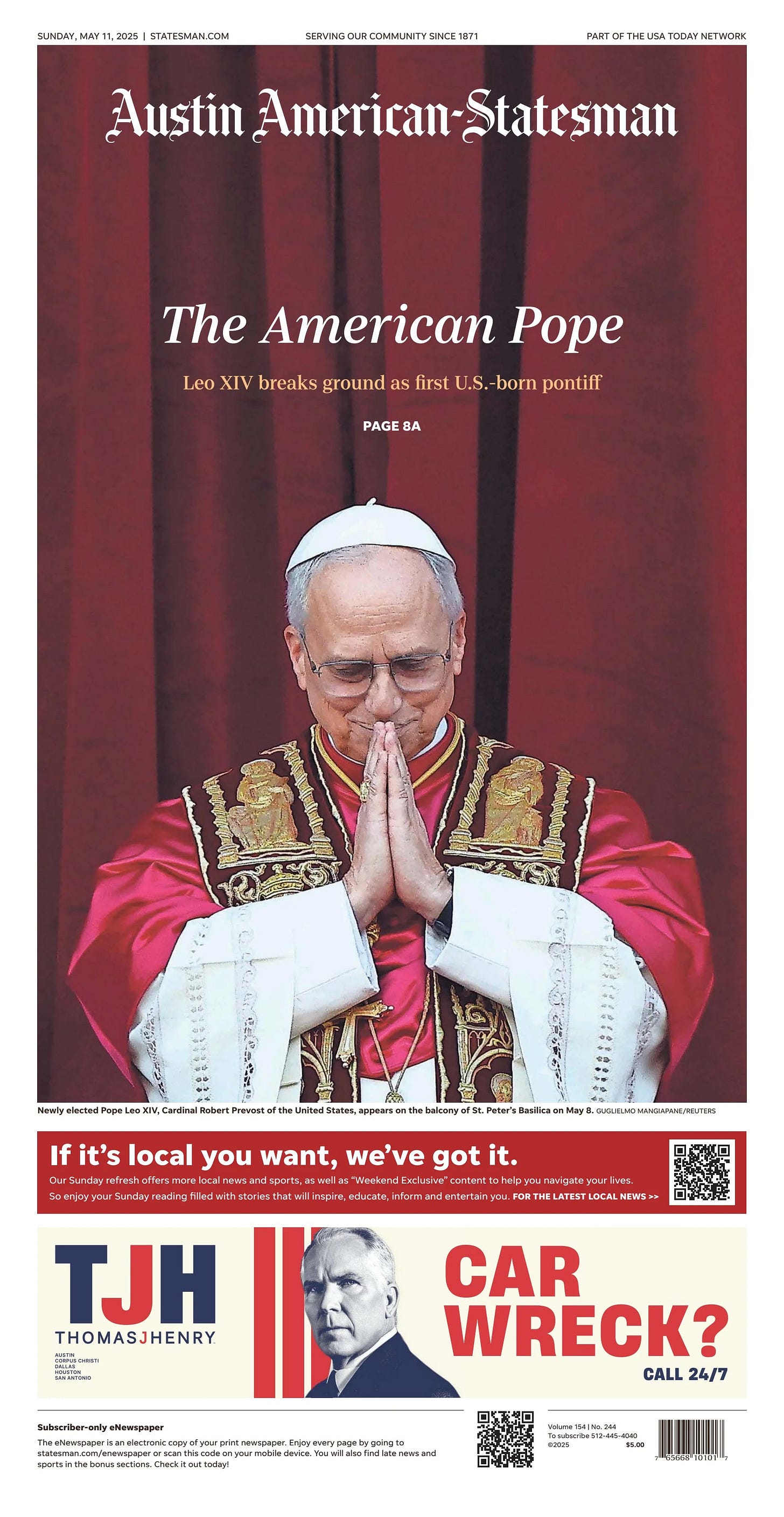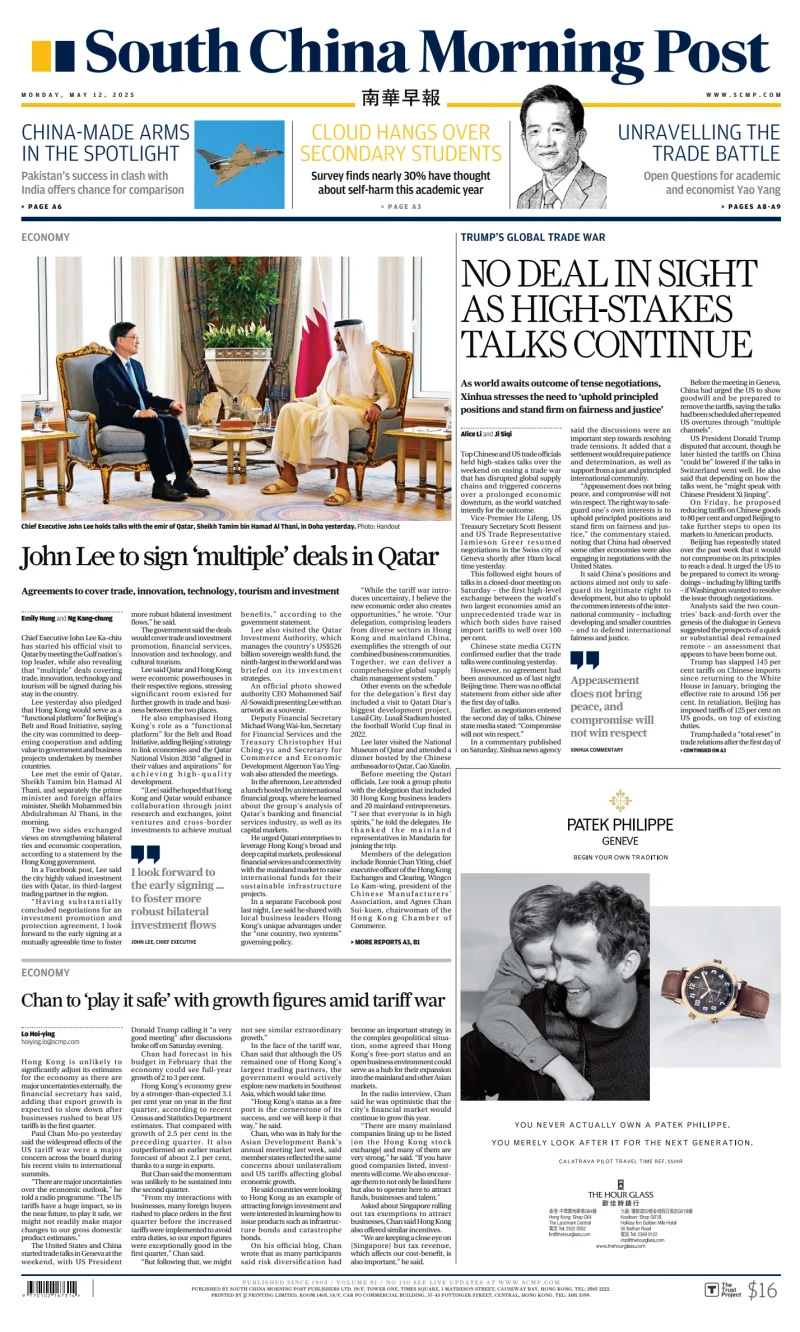Checkmate: Zelensky Corners Putin on Peace Talks
Diplomatic Standoff as Ukrainian and Russian Leaders Clash
Welcome to World Briefing Weekend!
It’s been a busy weekend on the global stage, and I’m here to help you make sense of it all. This edition is designed to give you the geopolitical insight you need to start your week informed and ahead of the curve.
If you find value in what you’re reading, consider upgrading to a paid subscription. Your support fuels my mission to deliver sharp, independent reporting and analysis—and gives you access to exclusive content you won’t find anywhere else.
Undercutting a weekend of European diplomacy, President Trump on Sunday implored Ukraine to accept a Russian proposal for direct talks rather than insist on a cease-fire first — as had been laid out in a plan announced a day earlier by European leaders during a visit to Kyiv. The leaders of France, Germany, the United Kingdom and Poland had set a deadline of Monday for Russia to accept a 30-day cease-fire — one initially proposed by the Trump administration — or face additional sanctions. When President Vladimir V. Putin of Russia made a counteroffer of direct talks, without mentioning a cease-fire, France and Germany rebuffed the proposal. Mr. Trump’s envoy to Ukraine in the talks, Gen. Keith Kellogg, had also earlier Sunday said Russia should halt hostilities as a first step in negotiations. But Mr. Trump wrote in a post on Truth Social that “President Putin of Russia doesn’t want to have a Cease Fire Agreement with Ukraine.” The Russian leader, he wrote, wanted direct talks to be hosted by Turkey instead. “Ukraine should agree to this, IMMEDIATELY,” Mr. Trump wrote. Earlier in the day, Mr. Zelensky responded cautiously to the Russian counteroffer of direct talks, insisting again on a halt in the fighting. After Mr. Trump’s post, Mr. Zelensky added a new twist to the diplomatic brinkmanship, saying he would personally attend negotiations. Mr. Putin, in suggesting direct talks, had not proposed a presidential meeting. Mr. Zelensky’s declaration in a post on X did not clarify whether his participation would depend on Russia first accepting a cease-fire, but he called again for Russia to halt hostilities to allow for diplomacy. “I will be waiting for Putin in Turkey on Thursday,” he wrote. “Personally. I hope this time the Russians will not look for excuses.” The flurry of exchanges came hours after Mr. Putin effectively rejected the Monday cease-fire deadline and instead proposed that direct talks between representatives of the two countries take place on Thursday in Istanbul - AP
Around the same time a unilateral three-day Russian ceasefire was set to expire, at least 20 Russian attack drones headed into Ukrainian airspace, including towards Kyiv. Close to midnight local time, almost half of the country was under air raid alerts.
Pope Leo XIV gave his first blessing as pontiff on Sunday. In his speech, he called for a just and lasting peace in Ukraine and an immediate ceasefire in Gaza. Before a crowd of about 150,000 followers in St. Peter’s Square, the Pope said: "I carry in my heart the suffering of the beloved Ukrainian people. Let everything possible be done to reach an authentic, just and lasting peace as soon as possible. May the prisoners be freed and may the children return to their families".
US and Chinese officials wrapped up the second day of bargaining in Switzerland, which US President Donald Trump labelled "great progress" and a "total reset". The lead US negotiator in trade talks, Jamieson Greer, said the Geneva meetings had led to “a great deal of productivity.” The world’s two leading economic powers are trying to find solutions to their trade dispute following US President Donald Trump's heavy tariffs and Beijing's retaliation. Details on what exactly was negotiated have yet to be released. However, US Treasury Secretary Scott Bessent said further information would follow on Monday - Euronews
In a policy shift that has unsettled officials in Israel, the United States under President Donald Trump is no longer conditioning Saudi Arabia’s civil nuclear ambitions on normalization with Israel. The move, first reported ahead of Trump’s May 13 visit to Riyadh, marks a sharp departure from the Biden administration’s approach, which had linked nuclear cooperation and security guarantees to a broader regional deal involving Israeli-Palestinian peace efforts. Under Biden, Saudi nuclear talks were tied to progress on normalization with Israel, with Washington hoping Riyadh’s leverage could help extract concessions from Israel toward the establishment of a Palestinian state. But with normalization effectively frozen -- due largely to the war in Gaza and Saudi Arabia’s insistence on Palestinian statehood -- the Trump administration has opted for a more transactional approach. This decoupling is seen by some as a reflection of Trump’s priorities. Gregory Brew, a senior analyst with the New York-based Eurasia Group, said the policy shift “isn’t too surprising” given Washington and Riyadh’s mutual interest in forging closer ties. He told RFE/RL that, for now, Saudi Crown Prince Muhammad bin Salman is content with “getting massive arms sales and a verbal commitment to assisting Saudi Arabia should it come under attack,” even as normalization remains off the table until “the situation in Gaza is resolved and progress is made toward a Palestinian state.” For Trump, economic deliverables appear paramount -- and the Saudis seem to understand that - RFE/RL
Migrants to the UK will need to spend a decade in the country before applying to settle unless they can show “a real and lasting contribution to the economy and society”, ministers are set to announce on Monday. The proposal to end automatic settlement after five years is part of a sweeping set of changes to the immigration system that will also heavily restrict employers’ ability to hire overseas workers for low-skilled roles. Yvette Cooper, home secretary, said on Sunday that overseas recruitment of care workers would end within months as a result of the changes, which will be set out in a white paper aiming to slash inward migration to Britain. Other changes will limit skilled worker visas to graduate level jobs, with employers only given temporary access to visas for lower skilled roles where there are staff shortages and plans in place to train and recruit UK workers. Cooper said the changes to low skilled work visas would cut arrivals by 50,000 a year and her broader plans would lead to a “substantial reduction” in net migration, but she did not set a numerical target - FT
Hours after polls closed in Albania, it remains unclear whether the ruling Socialist Party clinched a historic fourth term or if the opposition Democratic Party edged ahead after a fiercely fought election campaign. Not a single Albanian news channel released exit polls, leaving voters and observers in the dark about the outcome of an election seen as critical to Albania’s path toward European Union membership. Election officials expect the result to be known by Tuesday. “Exit polls were not published even by news channels who announced that they would have their own polls on the night of the election,” Lutfi Dervishi, a political analyst, told POLITICO. “There is no clear answer as to why this happened.” A lone exit poll released by Klan Kosova — a news channel from neighboring Kosovo — and the English-language Albanian Post news site known for its pro-government views, points to a decisive win for Prime Minister Edi Rama’s Socialists at 51 percent, with Sali Berisha’s Democrats lagging significantly behind at 38 percent - Politico
Want a behind-the-scenes look at the business of journalism?
Discover what it really takes to report from conflict zones and disaster areas in the latest episode of the re-launched Global Impact Show. This episode, I’m joined by BBC South Asia and Afghanistan correspondent Yogita Limaye. To watch, click here







